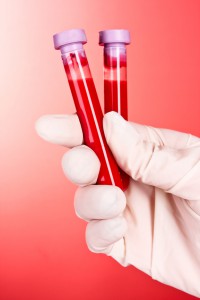
One of the difficulties doctors have in prescribing cancer treatment is knowing which methods will be most effective. That may change with the discovery of a biomarker that may help predict a tumor’s response to chemotherapy and radiation.
How Cell Division Affects Cancer Development
When cells divide, the duplicated chromosomes are pulled apart into the two new cells. A malfunction in this process can lead to chromosomal instability, which has the potential to drive development of cancer cells.
Researchers set out to study the expression of genes associated with normal chromosome division. Specifically, they wanted to find out how genetic changes contribute to chromosomal instability and whether these changes held clues regarding the behavior of tumors.
Genetic Markers of Chromosomal Instability
The team from Lawrence Berkeley National Laboratory examined 31 genes that had previously been identified as part of the chromosome division process. They discovered that these genes were over- or under-expressed in different types of cancer as opposed to corresponding normal tissue samples.
This led to the development of a 14-gene subset named the Centromere and kinetochore gene Expression Score, or CES. When measuring CES in tumor sample databases, the researchers found that a high score correlated with elevated levels of chromosomal instability.
Based on these encouraging results, researchers are hopeful that the biomarker can be used to predict response to cancer treatment as well as prognosis with or without treatment.
Immunotherapy: An Integrative Approach to Cancer Treatment
Immunotherapy at Issels® doesn’t carry the risk of debilitating side effects that accompanies traditional cancer treatments. Contact us for more information.





